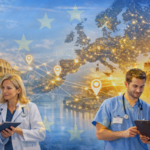Non-Reportable Transfers of Value: 10 Scenarios You Don’t Need To Disclose
Table of content
- Anonymized advisory board payments made via third parties
- Double-blinded clinical trials with no HCP identification
- Reimbursements to non-HCP administrative staff
- Awards to medical students
- Access to online tools via institutions (no named HCPs)
- Hospitality for foreign HCPs at Italian congresses
- Translation of publications
- General-use branded material handed out at events
- Free access to scientific webinars
- HCP feedback during unsolicited product inquiries
- Conclusion
Author
Mauro Teresi is a Counsel at Simmons & Simmons in the Dispute Resolution group based in Milan. He leads the firm’s Italian Product Liability, Regulation and Compliance practice and is a key member of its cross-border group.
With over a decade of experience in product liability and regulatory matters related to a wide range of medicinal products and medical devices, Mauro supports clients in domestic and cross-border commercial litigation and arbitration, early case assessment, and alternative dispute resolution procedures.
Simmons & Simmons
Recent Blogs
Cerchi supporto per la compliance al Sunshine Act?
Hai domande pratiche?
Dai un’occhiata alla nostra sezione Domande Frequenti per risposte chiare su scadenze, obblighi e strategie.
In this post, we break down 10 clear examples of non-reportable TOVs, with references to the Italian Sunshine Act, to help compliance teams avoid overreporting while remaining audit-ready.
1. Anonymized advisory board payments made via third parties
If your company pays an honorarium for advisory board participation via a third party, and has no role in choosing or identifying the recipients, this is not reportable. So long as the TOV can’t be traced back to a specific HCP, it falls outside the scope of the Italian Sunshine Act. If identities are revealed later or if your company influenced the selection, it becomes reportable retroactively.
2. Double-blinded clinical trials with no HCP identification
In clinical trials where blinding is maintained and HCP identities are unknown to the sponsor, the compensation provided is not reportable. This is true even if honoraria or reimbursements are processed through contract research organizations (CROs)—so long as individual attribution is impossible. Once HCPs are unblinded or compensated post-trial in an identifiable way, reassessment is needed.
3. Reimbursements to non-HCP administrative staff
Travel or meal expenses for secretaries, event coordinators, or logistics support personnel? Not reportable. They’re not licensed HCPs, and the law only applies to HCPs or HCOs as defined by Law 62/2022. This includes internal staff who don’t have prescribing or healthcare responsibilities.
4. Awards to medical students
Unless the student already holds a medical license in Italy, any award they receive is not a reportable TOV. Medical students fall outside the law’s definition of HCPs. If the student later becomes an HCP, and the benefit was tied to promotion or commercial activity, reassessment may be needed.
5. Access to online tools via institutions (no named HCPs)
This is not reportable. For a transfer of value (TOV) to be reportable, it must be attributable to a specific HCP or HCO. If the scientific tool (such as a medical database, drug interaction checker, or clinical decision aid) is licensed at the institutional level, for example, to a hospital department, and no individual HCPs are identified or granted exclusive access, the value is not traceable to a reportable recipient. Therefore, such a transfer is considered non-attributable.
6. Hospitality for foreign HCPs at Italian congresses
If an HCP is not licensed to practice in Italy, their congress-related hospitality costs are not reportable under the Italian Sunshine Act, even if the event takes place in Italy. However, companies may still need to report this under EFPIA or the HCP’s local transparency laws.
7. Translation of publications
If a life science company translates an HCP’s publication but the HCP did not request, suggest, or benefit from it, the cost is not reportable. The TOV is only considered reportable if it can be linked to an identifiable HCP/O. If a publication is translated solely at the company’s discretion for internal review, public dissemination, or scientific communication, and the HCP does not receive any form of compensation, acknowledgment, or tangible benefit, the activity does not fall within reporting requirements. However, if the translation enhances the HCP’s visibility, professional reputation, or is used in promotional materials, it may constitute an indirect benefit and become reportable under the Italian Sunshine Act.
8. General-use branded material handed out at events
Low-value promotional items handed out passively at exhibitions or congresses like pens or notepads do not need to be disclosed and are considered non-attributable, provided they are not specifically directed to identifiable HCP. If the items are personalized or handed out by name, they may cross the line into reportable territory.
9. Free access to scientific webinars
As long as a scientific webinar is publicly available and no individual registration, sponsorship, or personalized access is provided, it is considered a non-attributable educational offering. This could become reportable if a company invites specific HCPs, subsidizes their participation, or uses the event for promotional purposes.
10. HCP feedback during unsolicited product inquiries
If an HCP voluntarily contacts a company for scientific or product-related information and provides feedback, the interaction is considered spontaneous and non-promotional. As long as the company did not request the input and no payment or benefit is offered, it is not reportable. No TOV arises in the absence of solicitation, compensation, or a service agreement.
Conclusion
For companies operating in or engaging with Italy’s healthcare ecosystem, understanding what doesn’t need to be reported under the Italian Sunshine Act is just as critical as knowing what must be disclosed. Overreporting can create unnecessary compliance burden, dilute data integrity, and signal poor internal alignment. Clear documentation of non-reportable TOVs, and the rationale behind them, is essential for defensible, transparent, and efficient compliance.
Curious how your structure holds up under the law? Dive into our FAQs where leading legal and compliance specialists regularly address the most relevant and timely questions. If you don’t see the answer you need, simply submit your query, and our experts will get back to you with a tailored response.
Table of content
- Anonymized advisory board payments made via third parties
- Double-blinded clinical trials with no HCP identification
- Reimbursements to non-HCP administrative staff
- Awards to medical students
- Access to online tools via institutions (no named HCPs)
- Hospitality for foreign HCPs at Italian congresses
- Translation of publications
- General-use branded material handed out at events
- Free access to scientific webinars
- HCP feedback during unsolicited product inquiries
- Conclusion
In this post, we break down 10 clear examples of non-reportable TOVs, with references to the Italian Sunshine Act, to help compliance teams avoid overreporting while remaining audit-ready.
1. Anonymized advisory board payments made via third parties
If your company pays an honorarium for advisory board participation via a third party, and has no role in choosing or identifying the recipients, this is not reportable. So long as the TOV can’t be traced back to a specific HCP, it falls outside the scope of the Italian Sunshine Act. If identities are revealed later or if your company influenced the selection, it becomes reportable retroactively.
2. Double-blinded clinical trials with no HCP identification
In clinical trials where blinding is maintained and HCP identities are unknown to the sponsor, the compensation provided is not reportable. This is true even if honoraria or reimbursements are processed through contract research organizations (CROs)—so long as individual attribution is impossible. Once HCPs are unblinded or compensated post-trial in an identifiable way, reassessment is needed.
3. Reimbursements to non-HCP administrative staff
Travel or meal expenses for secretaries, event coordinators, or logistics support personnel? Not reportable. They’re not licensed HCPs, and the law only applies to HCPs or HCOs as defined by Law 62/2022. This includes internal staff who don’t have prescribing or healthcare responsibilities.
4. Awards to medical students
Unless the student already holds a medical license in Italy, any award they receive is not a reportable TOV. Medical students fall outside the law’s definition of HCPs. If the student later becomes an HCP, and the benefit was tied to promotion or commercial activity, reassessment may be needed.
5. Access to online tools via institutions (no named HCPs)
This is not reportable. For a transfer of value (TOV) to be reportable, it must be attributable to a specific HCP or HCO. If the scientific tool (such as a medical database, drug interaction checker, or clinical decision aid) is licensed at the institutional level, for example, to a hospital department, and no individual HCPs are identified or granted exclusive access, the value is not traceable to a reportable recipient. Therefore, such a transfer is considered non-attributable.
6. Hospitality for foreign HCPs at Italian congresses
If an HCP is not licensed to practice in Italy, their congress-related hospitality costs are not reportable under the Italian Sunshine Act, even if the event takes place in Italy. However, companies may still need to report this under EFPIA or the HCP’s local transparency laws.
7. Translation of publications
If a life science company translates an HCP’s publication but the HCP did not request, suggest, or benefit from it, the cost is not reportable. The TOV is only considered reportable if it can be linked to an identifiable HCP/O. If a publication is translated solely at the company’s discretion for internal review, public dissemination, or scientific communication, and the HCP does not receive any form of compensation, acknowledgment, or tangible benefit, the activity does not fall within reporting requirements. However, if the translation enhances the HCP’s visibility, professional reputation, or is used in promotional materials, it may constitute an indirect benefit and become reportable under the Italian Sunshine Act.
8. General-use branded material handed out at events
Low-value promotional items handed out passively at exhibitions or congresses like pens or notepads do not need to be disclosed and are considered non-attributable, provided they are not specifically directed to identifiable HCP. If the items are personalized or handed out by name, they may cross the line into reportable territory.
9. Free access to scientific webinars
As long as a scientific webinar is publicly available and no individual registration, sponsorship, or personalized access is provided, it is considered a non-attributable educational offering. This could become reportable if a company invites specific HCPs, subsidizes their participation, or uses the event for promotional purposes.
10. HCP feedback during unsolicited product inquiries
If an HCP voluntarily contacts a company for scientific or product-related information and provides feedback, the interaction is considered spontaneous and non-promotional. As long as the company did not request the input and no payment or benefit is offered, it is not reportable. No TOV arises in the absence of solicitation, compensation, or a service agreement.
Conclusion
For companies operating in or engaging with Italy’s healthcare ecosystem, understanding what doesn’t need to be reported under the Italian Sunshine Act is just as critical as knowing what must be disclosed. Overreporting can create unnecessary compliance burden, dilute data integrity, and signal poor internal alignment. Clear documentation of non-reportable TOVs, and the rationale behind them, is essential for defensible, transparent, and efficient compliance.
Curious how your structure holds up under the law? Dive into our FAQs where leading legal and compliance specialists regularly address the most relevant and timely questions. If you don’t see the answer you need, simply submit your query, and our experts will get back to you with a tailored response.
Author
Mauro Teresi is a Counsel at Simmons & Simmons in the Dispute Resolution group based in Milan. He leads the firm’s Italian Product Liability, Regulation and Compliance practice and is a key member of its cross-border group.
With over a decade of experience in product liability and regulatory matters related to a wide range of medicinal products and medical devices, Mauro supports clients in domestic and cross-border commercial litigation and arbitration, early case assessment, and alternative dispute resolution procedures.
Simmons & Simmons
Recent Blogs
Cerchi supporto per la compliance al Sunshine Act?
Hai domande pratiche?
Dai un’occhiata alla nostra sezione Domande Frequenti per risposte chiare su scadenze, obblighi e strategie.





